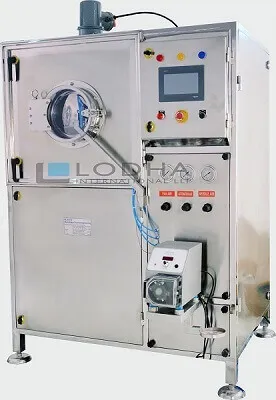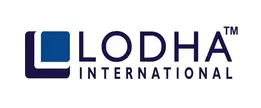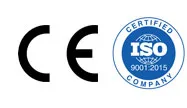Get in touch! +91 9687731331 | +91 9687631331 | info@lodhapharma.com
5 Benefits of Using a Tablet Coater for Your Pharmaceutical Business
Tablet coating is a process widely employed in the pharmaceutical industry to impart specific characteristics to oral solid dosage forms. It involves the application of a thin layer of coating material onto tablets, providing various benefits such as improved appearance, controlled release, increased efficiency, and stability. The use of tablet coaters has become increasingly popular among pharmaceutical businesses due to the positive impact they can have on the overall quality of their products.
If you're a business owner or professional who is looking for an efficient solution to coat your tablets, a tablet coater may be the right choice. However, before you purchase one, consider your business's needs and budget.
The coating can improve the visual appeal of pharmaceutical tablets, as well as reduce the possibility of errors during the production process. It can also increase patient compliance and expand market share.
1. Tablet Coater Enhances Product Quality
One of the primary advantages of utilizing a tablet coater is the enhancement of product quality. The application of a uniform and smooth coating can significantly improve the appearance and aesthetics of tablets. This is particularly important for pharmaceutical companies as it helps in creating a positive perception among consumers and healthcare professionals. Tablets with visually appealing coatings are more likely to be perceived as high-quality products, leading to increased trust and brand recognition.
Moreover, tablet coating provides a protective layer that shields the active ingredients from external factors such as moisture, light, and oxygen. This protection is essential in maintaining the potency and stability of the pharmaceutical product, ensuring its efficacy throughout its shelf life. By preventing degradation or alteration of the active ingredients, tablet coating helps to preserve the quality and effectiveness of the medication.
2. Controlled Release of Active Ingredients
In addition to improving product quality, tablet coating allows for the controlled release of active ingredients. This opens up possibilities for modified release formulations that can offer distinct advantages in various therapeutic applications. By adjusting the composition and thickness of the coating, pharmaceutical manufacturers can develop delayed release and sustained release tablets.
Delayed release tablets are designed to release the active ingredients at a specific site within the gastrointestinal tract, such as the small intestine. This can be particularly useful for drugs that need protection from gastric acid or enzymes in the stomach, ensuring optimal absorption and therapeutic effect.
Sustained release tablets, on the other hand, enable a gradual and continuous release of the active ingredients over an extended period. This helps in maintaining a consistent drug concentration in the bloodstream, reducing the frequency of doses and improving patient compliance.

3. Tablet Coater Increases Efficiency and can be Cost-Effective
Implementing a tablet coater in your pharmaceutical business can lead to increased efficiency and cost-effectiveness. The automated coating process allows for faster and more precise application of the coating material, reducing production time and costs. By utilizing a tablet coater, you can streamline the manufacturing process and improve overall productivity.
Additionally, tablet coating can contribute to improved yield. The coating layer helps to prevent the occurrence of capping and sticking, common issues that can result in the rejection of tablets during production. By reducing the number of defective tablets, a tablet coater helps maximize the yield, minimizing wastage and optimizing resource utilization.
4. Tablet Coater Improves Patient Compliance
Tablet coating plays a significant role in enhancing patient compliance, which is crucial for the successful treatment of various medical conditions. Coated tablets offer advantages such as easy swallowing and reduced bitter taste. This is particularly beneficial for paediatric and geriatric patients who may have difficulty swallowing larger tablets or may be sensitive to the taste of certain medications.
By improving the overall patient experience, coated tablets can promote adherence to prescribed medication regimens. Patients are more likely to comply with their treatment plans when they find it convenient and pleasant to take their medication. Tablet coating provides a solution that contributes to patient satisfaction and encourages better medication adherence, ultimately leading to improved treatment outcomes.
5. Tablet Coater Enhances Stability and Shelf Life of Medicines
Stability and shelf life are critical considerations for pharmaceutical products. Tablet coating plays a crucial role in enhancing stability by providing a protective barrier against environmental factors. Moisture, light, and oxidation can negatively impact the integrity and efficacy of medications, leading to degradation or loss of potency.
The coating layer acts as a shield, effectively protecting the active ingredients from moisture absorption, light exposure, and oxidative degradation. By maintaining the stability of the formulation, tablet coating helps extend the shelf life of pharmaceutical products, ensuring that they remain effective and safe for consumption throughout their intended lifespan.

